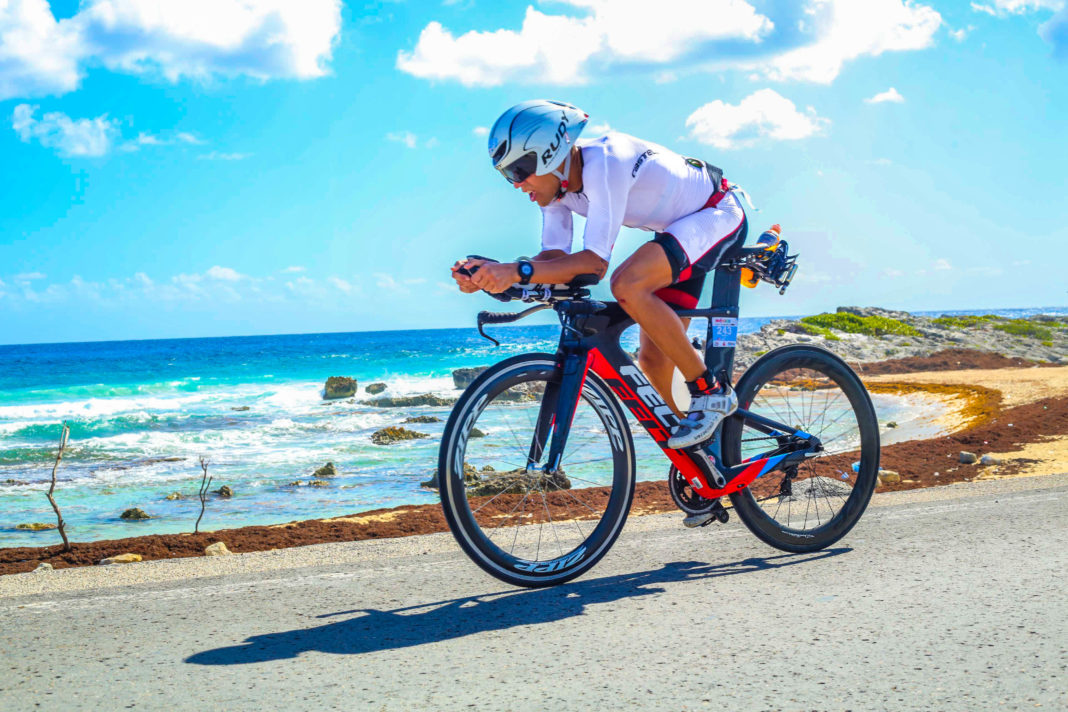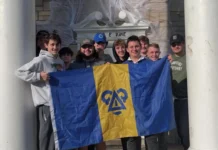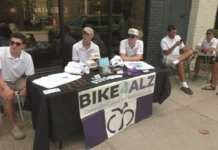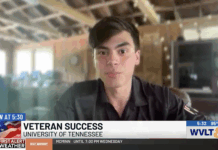On October 8, 2016, Rob Mohr, a Kappa Alpha, Vanderbilt University, ‘09 was about to fulfill a dream. He’d be braving the heat and wind of the day in Kona, Hawaii as part of the Ironman World Championship.
Mohr had sacrificed a lot to get here, including a job in New York City. But he had trained for this. He was ready. On your mark. Get set. Go.
Always an Athlete
Growing up, Mohr was always involved in sports. And while the 30-year-old played baseball, football, basketball, and lacrosse, he wasn’t a strong enough athlete to play at Vanderbilt, a Division 1 school. “I certainly stayed active. I had an interest in health and wellness, but I let the dream of playing sports die off, and I focused on my studies,” says Mohr.
After graduation, Mohr headed to New York City to work in public relations and communications. While there, he was looking for a way to stay in shape. A conversation with his dad would end up changing his life.
The First Time
Mohr’s dad suggested he run in the eight-mile Turkey Trot being held over Thanksgiving of 2009 in Dallas, Texas. “He had run this race at a seven-minutes pace when he was about 35, and he challenged me to run it at that pace,” says Mohr. While in New York, Mohr had already begun running and decided to give the Turkey Trot a shot.
“I had gone from running really slowly to actually being able to hold that pace for the duration of the race,” recalls Mohr. “This was the big breakthrough that got me hooked on the sport.”
Mohr set his next goal to run a half marathon in New York City in March, 2010. In April, he ran a half marathon in Nashville with a friend. When he reached the halfway point, Mohr decided that he wanted to finish the whole race. It was his opportunity to say that he had, indeed, run an entire marathon.
While the weather had been, in Mohr’s words, “glorious” during the first half of the marathon, as soon as he started running the other half, “the skies opened up.” Mohr continued on and crossed the finish line in the pouring rain.
Now, he was really hooked on running.
The Next Step
Before he ran his first full marathon, Mohr had participated in his first triathlon. “It was incredibly hard,” says Mohr. “I did well in the run, but I hadn’t trained for the bike and swimming parts. Doing the triathlon kind of shocked my system.”
What Mohr discovered is that with high endurance sports like triathlons, if he worked harder, he would see results. He continued to train and compete. When he found out that New York City was going to host an Ironman distance triathlon for the first time, he took it as a sign. “I had wanted to do an Ironman,” says Mohr. “I knew this was one I needed to do.”
At the time, Mohr was still training on his own, and, he admits that preparing for a triathlon in New York City isn’t the easiest thing to do. “I’d be riding on a bike trainer for three-to-six hours a day in the common area of the apartment that I shared with four close friends,” says Mohr. “Sometimes I’d think to myself, ‘What am I doing?’”
On the day of this Ironman, Mohr was happy. “It didn’t feel like an 11-hour race. Largely, that’s because it’s such a daunting distance at the outset that you break it down mentally,” says Mohr. “Crossing the finish line, I remember thinking that I could do one of these again—and probably a lot faster.”
That’s when Mohr knew he wanted to go even bigger and compete in the Ironman World Championship.
Training on a Whole New Level
In September 2014, Mohr reached out to Justin Daerr, co-owner and coach, Endurance Corner, LLC. Mohr said he wanted to qualify for the race in Kona and asked if Daerr would coach him. Daerr agreed.
“The initiatives he was taking and his motivation level gave me the impression that he was serious about his goals,” says Daerr.
Mohr was so serious about training to qualify for the Ironman in Kona, that in March 2015, he quit his public relations job. “I think my mom and dad probably thought I was a bit crazy, but they know that when I’m focused on something, I’m one to put everything into it,” explains Mohr. “I was doing well in my job, but at the same time, I felt as though I was selling myself short in triathlon and my career. By having a partial focus on each, I felt like I would never be able to maximize how well I would do in either. So either I had to focus on work one hundred percent and scale back on the triathlon or vice versa. Having Justin take me on as a client and believe in me helped me make the decision.”
While he trained, Mohr worked as a PR and social media consultant. For three weeks during the summer of 2015, he moved to Boulder, Colorado to train with Daerr. His goal was to finish in the top three in his age group in the Ironman Mont-Tremblant in Canada so that he would qualify for Kona.
Despite all his training, Mohr finished in fifth place. He didn’t qualify. But he wouldn’t be deterred.
Mohr temporarily moved to Boulder for a few months this time to train for the Ironman Cozumel in November 2015. He worked with Daerr and trained hard. “Rob has excellent intuition. He puts his trust in me to manage the overall program, but he also takes the initiative to learn about the sport and what it takes to be the best—particularly in regards to other non-training areas like nutrition, recovery, etc.,” says Daerr. “Rob has an expectation that his goals are going to take hard work and doesn’t look for short cuts.”
At Cozumel, Mohr finished first in his age group. He was going to Kona.
The Big Race
Although he’s now based in Los Angeles, Mohr once again spent time in Boulder—six weeks in August and September 2016. While he hoped to finish in the top 20 in his age group on October 8, Mohr just wanted to finish, period. “Hawaii is known as the hardest of the Ironman races—just given the climate, the wind, and the fact that everyone around you is a really strong triathlete,” says Mohr. “It’s easy to make stupid decisions and go too hard at points in the race. It’s easy to succumb to the heat or to the wind while riding your bike. My goal is to go faster than I did in Cozumel and to finish well in my age group.”
“One aspect of this that I really enjoy is that triathlons are kind of like a lifestyle sport, and you meet really amazing people in it,” says Mohr. “No matter what, I can’t see myself as totally walking away from triathlon, just given the community within the sport. Even if I’m racing slowly, there’s so much to be gained from people and the atmosphere at races. And there’s the opportunity to go out there and give it everything you have.”























